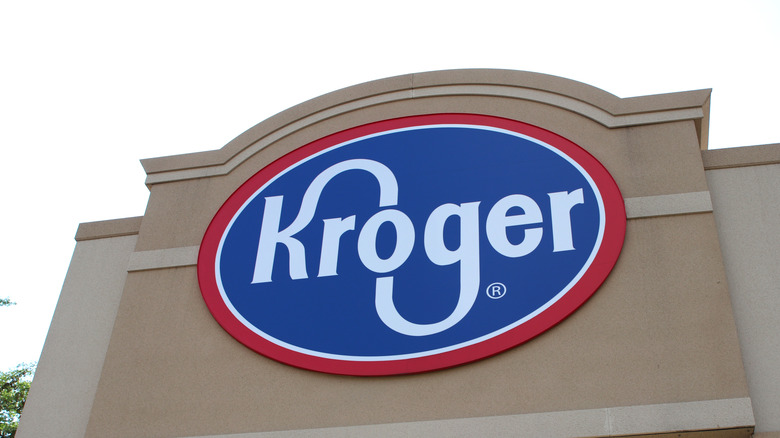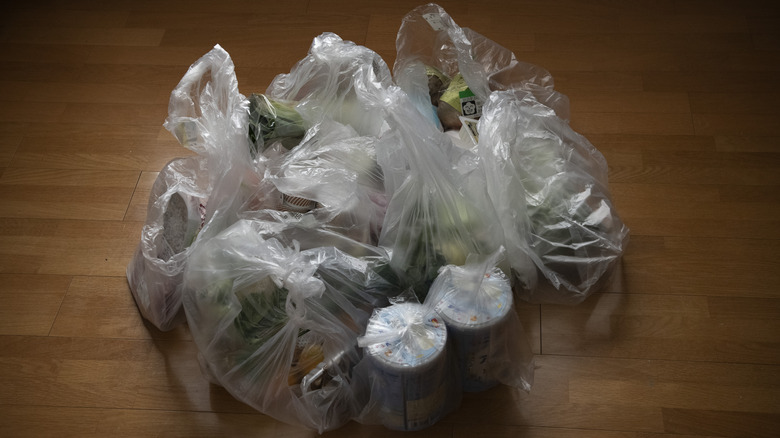This Is When Kroger Plans To Eliminate Its Plastic Bags
Most of us will admit to having a love-hate relationship with plastic bags. We know they're problematic for the environment, but at the same time, they become a necessary evil when we're out and we need a place to stash our shopping. However, even the biggest grocery chains realize the environmental impact that plastic bags can have, and part of Kroger's upcoming plans include the deletion of single-use plastic bags from their stores.
The first of the Kroger stores to successfully eliminate all plastic bag use is QFC, which completed its phaseout in 2019. While the goal was to end plastic bag distribution by the end of the year, QFC customers managed to wean themselves off plastic bag use by March 31st of the same year. QFC, on its own, used to distribute 30 million plastic bags a year (via Kroger). The company's initiative isn't happening in a vacuum — as of 2019, more than 400 cities and states across the country now either ban or tax plastic bag use (via Vox).
Kroger will follow suit, and they have a specific date in mind.
2025 will spell the end for plastic bags in Kroger stores
For a major grocer like Kroger to say they are on track to eliminating single-use plastic bags from its 2,779 stores across the country by 2025, this is a big deal — particularly because it hands out as many as six billion of these plastic bags every year (via Supermarket News). But while supermarkets are doubling down on making sure to get rid of single use plastic bags by a specific date, there are questions over how much a ban like Kroger's will actually help the environment in the long run. While there is a strong case for banning single-use plastic bags, some environmental experts say a plastic bag ban won't stop the earth from getting covered in plastic, particularly if it's the only thing shoppers and companies do.
For instance, Tufts University visiting scholar David Sussman points out that we can fall into a pattern of what he calls compensatory behavior — which means that when we do something good, there are those of us who might give ourselves permission to do something worse to the environment, because we might feel we've already done our bit to save it (via The Conversation).
What researchers like those at the World Resources Institute are hoping is that companies invest in redesigning plastic so that the material can be recycled and re-created into something new. As for the bags you've got now, Sussman says if you use them a second time, you cut the amount of damage it can do to the earth by half. If you use it four times, you could drop a bag's negative impact to 25 percent. This way, Kroger's loyal customers don't really need to wait until 2025 to help save the environment.

